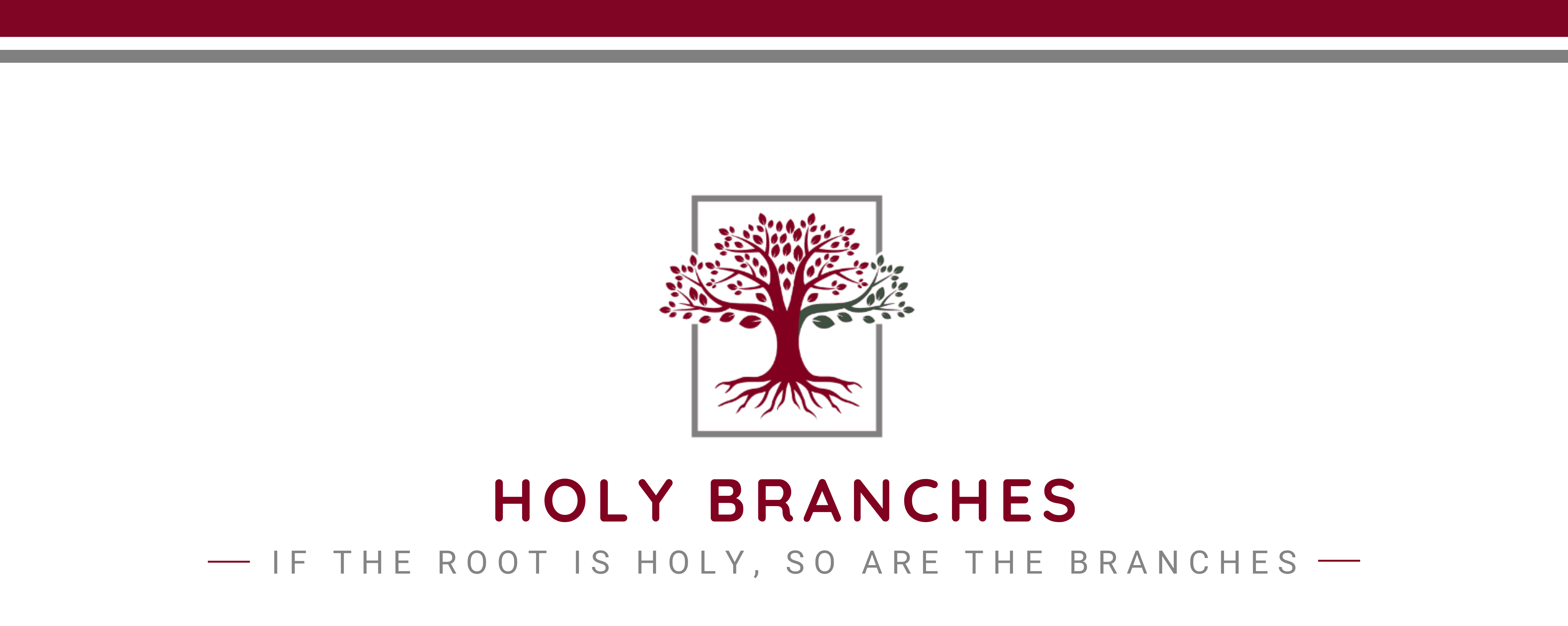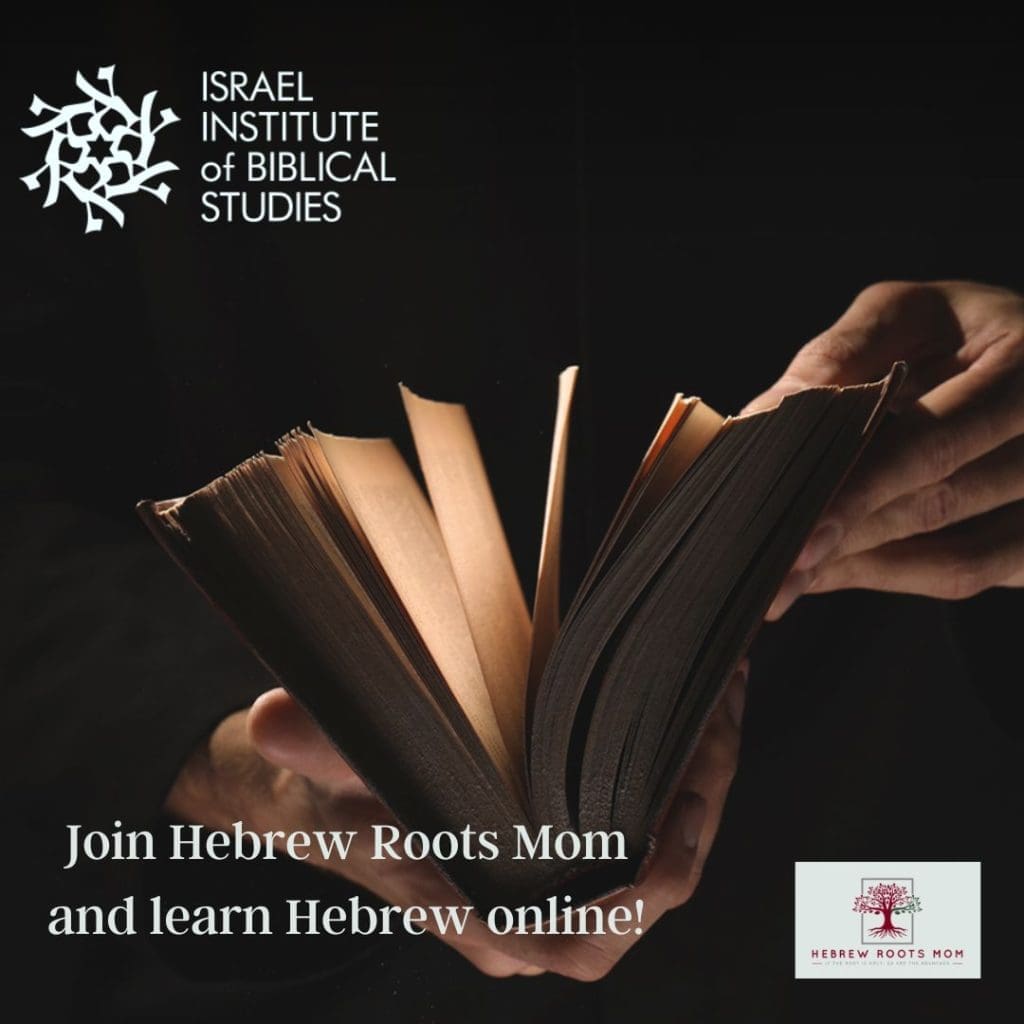
How to Connect the Hebraic Faith of Your Faith to Real Life
After realizing the value of learning the Hebraic Roots of the Christian faith, there is no clear path to follow, leaving many people feeling stuck, not knowing how to proceed. Although they know that many Jewish traditions like Passover, for example, point to Jesus and enrich the Gospel, there’s no specific source on how to implement those in a modern American Christian family. Searching the internet may help, but it may also be confusing due to conflicting viewpoints inside and outside the Hebrew Roots Movement.
In Acts, there was an ongoing debate about whether Gentiles could participate in the faith of the early Messianic Jews without following all details of the Torah. James the Apostle replies, “Therefore, I judge you not to trouble those from among the Gentiles who are turning to God…” (Acts 15:19-20). James knew, and I’m assuming God knows, that learning Jewish traditions as a Gentile takes some time and grace. Although Christians have already “turned to God,” we may be just beginning to incorporate Biblical practices into our faith. Our family has had to find resources and learn a lot independently, and there has been a steep learning curve. If you give time and grace to yourself and your family in this endeavor and combine them with your conviction about learning these practices, you’ll eventually figure it out. It has been a long process for my family and me, but we’ve grown so much, and it’s been so worth it!
Start with the Sabbath (Shabbat)
The best place to start is by incorporating the practice of a weekly Sabbath. Observing the Sabbath is where my family started, but I have other reasons for it being a good starting point.
- It’s one of the 10 commandments (Ex. 20:8 and others).
- It happens weekly, allowing for a lot of practice.
- Your practice of it can vary.
- Many Jews revere it as the most holy day.
- It can bring peace to your home.
- It will bring rest.
- It is a sign of the covenant between God and His people (Ex. 31:16, Lev. 24:8, and others).
- It was made for us! (Mark 2:27)
Soon after you attempt to start doing the Sabbath, you’ll realize that the rest of your week must change to accommodate a workless Sabbath. Friday will turn into Preparation Day, and the chores from Friday and Saturday must be spread out throughout the week. It may be helpful at this point to make or revise your cleaning schedule. A word of caution, though – be careful you don’t ruin your Sabbath by sliding into it exhausted, resentful, and arguing with your family due to your stressing to get everything done. Unfortunately, I’ve done it many times, and it will disrupt the peace the Sabbath is supposed to bring. Keep preparations simple at first, focused on allowing for rest, togetherness, and time with God. Here are some things to start with.
- Compile some family favorite recipes that are easy to make or can be made ahead of time and use those for Friday and Saturday evenings.
- Make or plan meals with little prep (like veggies and dip or sandwiches) for Saturday lunches. Here’s the hummus recipe we use regularly.
- Make sure the house is clean enough for everyone to be able to relax (kitchen, bathrooms, and main living areas functionally clean).
- Lay out clothing for Shabbat on Friday.
Find resources
I’m so glad you’re reading this! When I started my Hebraic faith journey, resources for Christians were minimal. I had to wade through Jewish sources, deciphering what applied to me and what didn’t. While I won’t claim to have all the answers, I will share what I’ve learned to make this path easier for other Believers to travel. Many other resources are out there now, most of which weren’t available even a few years ago. Here are some of my favorites, and there are even more on my resources page:

Websites
- Hebrew for Christians – While the focus is to teach Hebrew, they also cover holidays, prayers, and more.
- 119 Ministries – Videos and podcasts that provide Biblical answers to many of our questions on our journey.
- Torah Class – The BEST bible study I’ve found that’s from a Hebraic perspective. This study is intense, not directed toward seekers but mature Christians familiar with the Bible. The site has many studies covering the Old and New Testaments and topics, all of which are free!
- Land of Honey – Many additional resources for Christians seeking Hebraic information – holidays, printables, etc.
- Aish.com – Educational website about Judaism – holidays, Torah, Jewish wisdom, etc.
Books
- Enter His Gates by Susan Marcus – Covers Jewish holidays and traditions and how they relate to Christians.
- A Family Guide to the Biblical Holidays by Robin Sampson and Linda Pierce – Not only shows you how to celebrate Biblical holidays as a Christian but also how to teach the Bible to your children.
Visit a Hebraic Congregation
It’s easier to navigate this new beginning with a community. Chances are getting better that there’s one near you. Even if there’s not, it’s worth the drive! Find one here or here.
I know visiting a new church or synagogue can be intimidating, especially of a different faith than you’re used to! In my experience, Messianic Jewish congregations are open to Christians joining them and welcome them with open arms. If you have any questions or are hesitant to visit one in your area, call first and inquire. I’m willing to bet they’d love to have you show up!
Study the Torah
Studying the Bible from the point of view that the Torah (the first five books) is the root of all Scripture can deepen your knowledge of the Bible in its entirety! If you’re not sure where to start, print out and follow my free, printable Torah reading schedule. It will have a reading from the Torah and a corresponding reading from the New Testament. When I started studying the Bible this way, it significantly improved my understanding of the whole Bible, and I think it will do the same for you.
Learn Some Hebrew
It’s not just one more thing to add to our already full to-do list! Learning the Biblical Hebrew language or having a good grasp on the most-used Hebrew words in the Old Testament can significantly increase your understanding of the culture of the Hebrew people (Jesus’s!), both the Old and New Testaments, and even God Himself.
Although translated by some very educated and gifted individuals, there’s no substitute for the Bible in its original languages. Hebrew doesn’t translate well to English, leaving room for some misunderstanding. One of our lifelong pursuits as Christians is to study the words of our God. Given this, what could stop us from increasing our understanding of the Bible by learning the original language of its writing? Get started! I bet it won’t be as challenging as you think!
Stay in the Word
Always. But especially while you’re on this path that is new to you. As you research and come across resources to help you, use discernment. Compare what you hear to what the Bible says and pray for clarification when necessary. Many Christians of all denominations have gradually and unknowingly strayed from following God through His word to following a pastor, author, or another person instead. This journey is between you and your family and God. Please make sure it brings glory to Him and no one else.
Comments (13)
Leave a Reply Cancel reply
Search
Recent Comments
- Denise Kerhlikar on Explaining The Chosen: Season 3, Episode 3: Physician Heal Yourself
- DSS on Wild Olive Branches: The Blessing of Being Grafted In
- Nicolai Marvin on An Introduction to the Hebrew Vowels
- Kathy on How to Find a Hebraic Congregation
- Amy on Explaining The Chosen: Season 1, Episode 3: Jesus Loves the Little Children






Thank you so much for this article! I came across it on pinterest, looking for ways to incorporate the Hebrew roots of our faith into my life more. I used to observe shabbat, but haven’t for years, due to exhaustion from health concerns, and now I would like to start again, but I still find it overwhelming. What, in your opinion, is the easiest way to start?
Today Raba 🙂
I would recommend starting with taking the day off of work and setting aside some time for Bible study. Here are some ideas for observing the Sabbath: https://holybranches.com/what-do-we-do-on-the-sabbath/ And here’s a step-by-step Sabbath guide that may help: https://holybranches.com/step-by-step-guide-to-a-messianic-sabbath/
Blessings and Shalom to you on your journey!
Shalom
I’m in The MotherLand, Ghana W.A. Any english speaking fellowships here???
Todah very much.
Shalom
Shalom! I know it can be difficult to find a congregation and I’m not sure if there’s one in your area. Here’s an article with some resources that may help you find one though: https://holybranches.com/how-to-find-a-hebraic-congregation/
I am so sorry to see what the HR has become. I taught the HRC for 13 years at the independent church from 2000-2013 have been at for 36 year. But, this must be balanced with Galatians and Hebrews, we are not to mix Law and Grace, we have been freed from the outward demands of Torah and we have Torah written on our hearts in Christ. If you are looking to be accepted by God by living an “observant” life, you have missed the FINISHED work of Christ on the cross and are trying to merit yourself before God. Please also read Acts 15 on the first church council. It hurts me to see good Christians going back to the Law rather than living in the Grace Yeshua has brought to us.Understanding Torah and the Festivals can and does add a richness to my faith in the work of Christ, but we are to live in the New Covenant, not any kind of Re-newed Old Covenant. Please come back to the Grace of Jesus Christ and His freedom and the indwelling of the Holy Spirit! I love you in Christ,but we are redeemed from the outward Law.
Hello Daryl. I appreciate your concern and your kind way of addressing your argument. I understand what you’re saying and I do not agree with all of the beliefs that fall under the umbrella of “Hebrew Roots“. I find there are some strange and unbiblical “Hebrew Roots” teachings out there.
However, I disagree with you that living under grace means that the Law is done away with. We are not saved by obeying the Law but our lives do need to change once we decide to follow Jesus and accept his gift of grace or our faith is “dead” (James 2:26 and others).
How do you believe we should live once we are under grace? When the Law (which never changes – Ps. 19:9, 89:34) is written on our hearts? Obviously that freedom doesn’t mean we can now steal or be sexually immoral, etc. We grow in sanctification as we learn what God wants our lives to look like and study what Jesus taught.
If your position is that Jesus came to do away with the Law, the following clear statements Jesus made need explanation.
Matt. 5:17-19 “Do not think that I came to abolish the Law or the Prophets; I did not come to abolish but to fulfill. For truly I say to you, until heaven and earth pass away, not the smallest letter or stroke shall pass from the Law until all is accomplished. Whoever then annuls one of the least of these commandments, and teaches others to do the same, shall be called least in the kingdom of heaven; but whoever keeps and teaches them, he shall be called great in the kingdom of heaven.
Matt. 19:16-17 And someone came to Him and said, “Teacher, what good thing shall I do that I may obtain eternal life?” And He said to him, “Why are you asking Me about what is good? There is only One who is good; but if you wish to enter into life, keep the commandments.”
John 14:21 “He who has My commandments and keeps them is the one who loves Me; and he who loves Me will be loved by My Father, and I will love him and will disclose Myself to him.”
John 15:10 If you keep My commandments, you will abide in My love; just as I have kept My Father’s commandments and abide in His love.
Here’s a great overview on Christians and the Law (there are many others): https://torahclass.com/topical-teachings-christians-and-the-law/?format=audio&lang=en
A note on Acts 15: Does it make sense that the apostles only gave Gentiles 4 laws to adhere to once they embrace the Messiah? Why didn’t they include laws on monogamous marriage or loving your neighbor? There wasn’t anything else expected of these new believers than those 4 basic laws? Of course not. The 4 laws were a starting point for them and the apostles expected them to learn more as they grew in faith.
On Hebrews and Galatians: An honest look at all of Paul’s writings seems to reveal both pro- and anti-Law statements. Contrast Rom. 7:12 with Gal. 3:10 or Eph. 2:15 with Rom. 3:31, for example. His seemingly anti-Law statements are taken literally while his pro-Law statements are downplayed or applied to maybe the 10 Commandments or the Great Commission. These statements appear to conflict only because he’s saying something other than what traditional Christianity tells us he is. Further study is necessary to explain this “conflict”. I recommend 119 Ministries’s series on The Pauline Paradox: https://www.119ministries.com/teachings/video-teachings/detail/pauline-paradox-part-1-is-the-majority-ever-wrong/
Jesus was clear on the subject of the Law. Where Paul is confusing, Jesus brings unmistakable clarity (See verses with quotes from Jesus above).
Thank you for writing this blog. I found it while searching for ways to worship that didn’t involve ear plugs and a pop concert. We’ve been doing a Sabbath and passover as a family for years, but I didn’t know if Christians were accepted as Messianics or what that conversion entailed. Long story short, I found one of your posts in a Pinterest post, followed a rabbit trail from there, joined a Torah Club, and low and behold, discovered a small Messianic, non-jewish community who meet in their own homes. It was an answer to my prayer, and your blog was my first stop to Getting there. Thank you.
Thank you for sharing! My husband and I have been digging into Hebrew roots for 2 years now! Coming across people who are like minded in this endeavor are far and few between. So great to know we are alone
Glad to hear from you, Sam! No, you’re not alone, although it does feel like that at first, doesn’t it? I hear from Believers all over the world in your position so I wrote a couple posts covering this specific subject.
https://holybranches.com/youre-not-alone-the-growing-hebrew-roots-movement/
https://holybranches.com/how-to-find-a-hebrew-roots-congregation/
Thanks for visiting my website and blessings to you and your husband on your faith journey!
Thank you for the information! I was raised legalistic and have been recovering from spiritual abuse and looking for my truth. I feel strongly the Torah lays everything out the way I want and believe. I just am so desperate for fellowship and learning.
I’m glad this site has been helpful to you! I hear from so many in your position – convicted to follow God in this way, but lacking community and resources.
Here are some sites that may help you find a Messianic/Hebrew Roots congregation in your area:
119 Ministry’s Fellowship Finder
The Union of Messianic Jewish Congregations
Answers in Torah Messianic Jewish Congregations Directory
And if you can’t find an in-person congregation in your area, here are some congregations that live-stream or record their services and teachings so you can follow along from home:
Founded In Truth: https://foundedintruth.com/live/
Beth Yeshua International: https://livestream.com/accounts/11705807
Hebraic Roots Network: https://www.hebraicrootsnetwork.com
119 Ministries: https://www.119ministries.com
how wonderful to have run into your website. I am a christian lover and servant of Yeshua and I am also so into learning my hebrew roots and the Hebrew language which my little girl and I are learning ( my beloved husband to busy to do so for now )
I’m happy to hear it’s a blessing to you, Ruth! If you haven’t found them already, there are more resources for learning Hebrew on my Hebrew Language Resources page here: https://holybranches.com/hebrew-language/